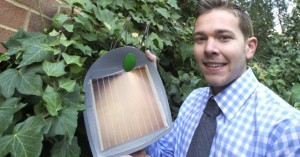Involving Students in Climate Action Planning Prepares them for Life after College
By Anne Bertucio, Business & Community Relations Coordinator, Focus the Nation
(This article appears in the October, 2012 issue of The ACUPCC Implementer)
Student involvement, ideas, and innovation have been and continue to be a driving force behind sustainability successes on college and university campuses. In 2008, Focus the Nation (FTN) launched a national teach-in campaign to empower students through education, civic engagement, and action to advance a clean energy future. In turn, the ACUPCC has provided a terrific opportunity for students through their FTN training to play an integral role in the development and implementation of their campus’ Climate Action Plan’s.
Currently FTN offers the Forums-to-Action (F2A) program providing students withleadership skills, energy literacy, experiential learning and professional development. The F2A program benefits both the student and campus as it provides a framework for interdisciplinary collaboration, academic engagement with industry experts and elected officials, and an opportunity to apply existing campus resources to urgent sustainability issues in the community, to name a few. F2A participants at the University of Utah and the University of Tennessee, Knoxville have already made an impact. Their efforts show how valuable student leadership in implementing the climate action plan can be to the institution’s carbon footprint, and the capacity of students to prepare for a changing economy by shaping their institution’s climate and sustainability initiatives.

University of Utah student Tom Melburn holds a prototype of a photovoltaic panel that will be part of a “solar ivy” installation
At the University of Utah, one portion of their Climate Action Plan focuses on meeting their net neutrality goal through interdisciplinary collaboration. F2A student team leader Tom Melburn used Focus the Nation’s (FTN) unique collaboration framework (the FTNCollaboration Quadrants) to bring multiple university departments and academic disciplines together to fund the first Solar Ivy installation in North America on the University of Utah campus.
Placed in a high foot-traffic area of campus, the Solar Ivy installation demonstrates new, innovative clean energy solutions to students, visitors, and faculty. But F2A leader Tom hasn’t stopped there. Inspired by other F2A student teams across the country, Tom used the F2A program to generate interest in a sustainable financing mechanism, called a green revolving fund, for student-led renewable energy projects. Tom is now installing solar on a second campus building through the fund. Through these projects Tom has gained skills in project management, stakeholder engagement, fundraising, and public speaking, all while increasing his energy literacy.
One of the F2A student teams Tom collaborated with was the University of Tennessee, Knoxville (UTK). The UTK F2A team is working with administrators to sign the Billion Dollar Green Challenge, a nationwide initiative for universities to establish a revolving fund and collectively raise one billion dollars towards energy efficiency projects. Through their work with Focus the Nation’s leadership development staff, the UTK team hosted an event called “Getting’ Green, Savin’ Green: Energy Efficiency at UT” to bring together the numerous stakeholders involved in their campus’ energy story. One of those stakeholders is the utilityTennessee Valley Authority (TVA).
UTK is the largest purchaser of renewable power from TVA, but thanks to the FTN event, UTK is now partnering with TVA to become their most energy efficient customer. Both the Billion Dollar Green Challenge signatory and the TVA partnership progress the goals of UTK’s Climate Action Plan. Like Tom, the UTK student team grew as leaders and developed skills they will take beyond graduation.
The collaboration and innovation of these two student teams captures the spirit of Campus Sustainability Day and the power of higher education to move sustainability forward. By engaging in a continuing dialogue as part of the CSD conversation this year, the campus community can reflect together on these successes, using their regional or campus conversations as a platform for discussing new challenges and opportunities to ensure students are prepared for a changing climate and economy through integration and support of the campuses’ climate neutrality goals.
To launch an F2A team on your college campus and learn career skills while being part of the clean energy solution, contact Focus the Nation atinfo@focusthenation.org or call 503-224-9440.
- Add new comment
